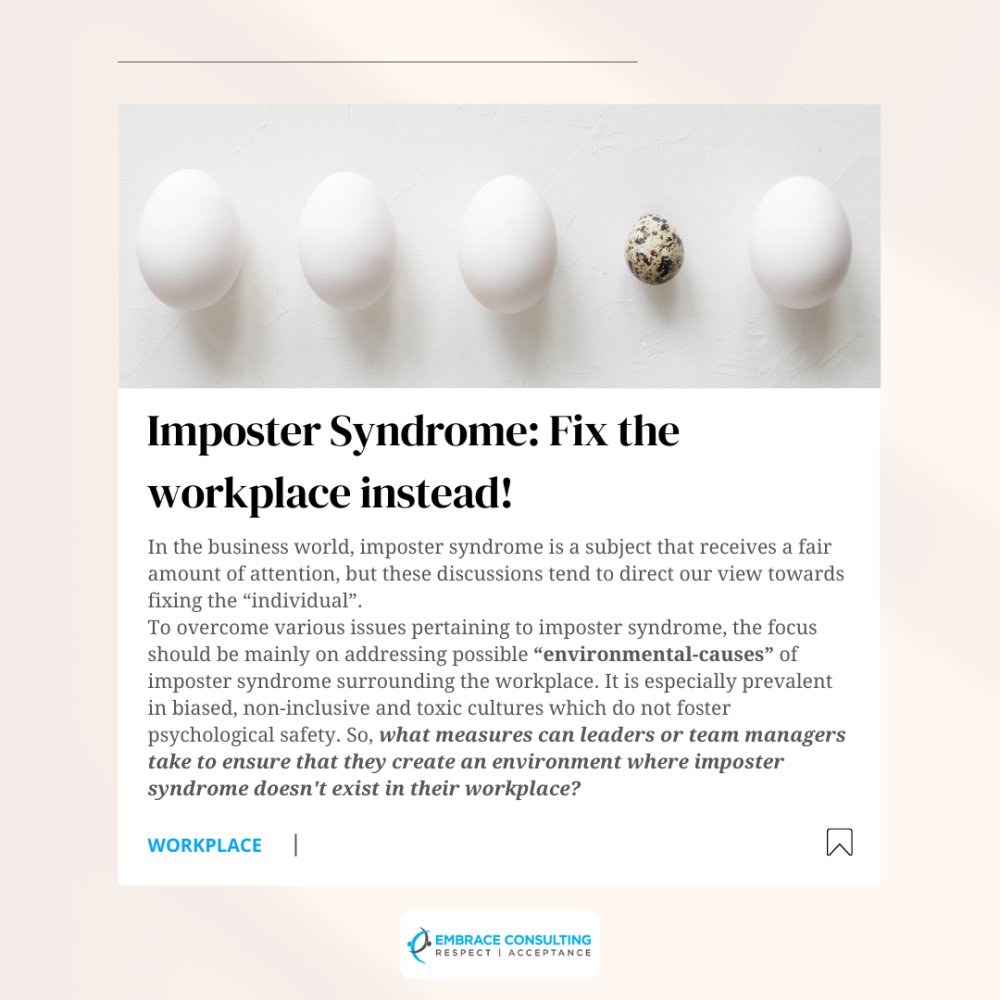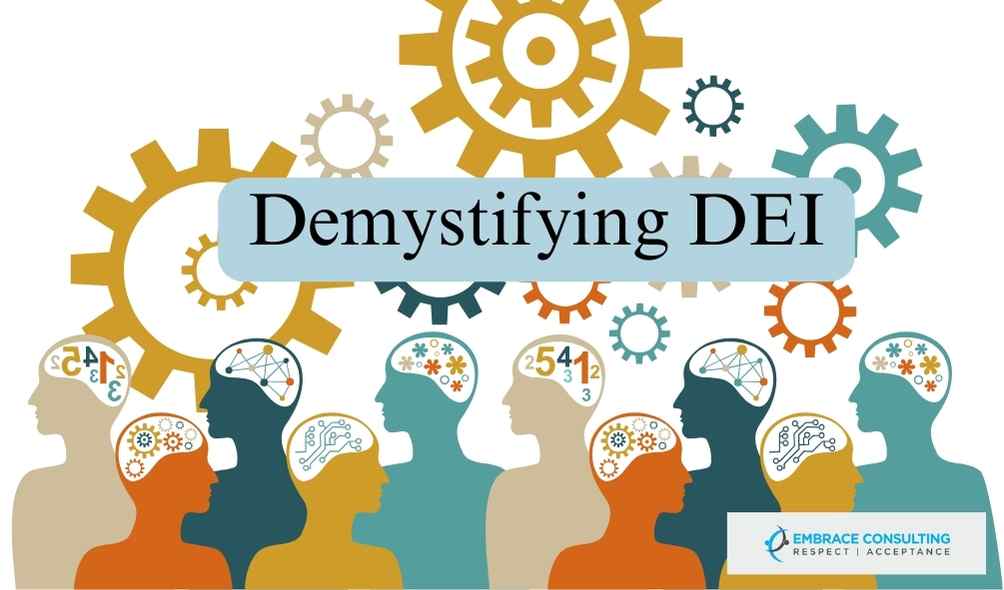Do you often fear that you’re not smart enough? Or blame yourself for minor mistakes? Are you feeling like a con artist who’s fooling your co-workers and fears being exposed?
Many business professionals suffer from similar lingering thoughts and this psychological phenomenon is known as “Imposter-Syndrome”. It can be loosely defined as a sense of self-doubt related to work accomplishments. It is much more common in the workplace than most people realize and it can negatively impact an individual’s experience in the workplace; it can lead to burnout and hamper their productivity at work. Most people who are struggling with these emotions don’t feel secure enough to talk openly about their experience, which makes it more challenging to cope with it.
In the business world, imposter syndrome is a subject that receives a fair amount of attention, but these discussions tend to direct our view towards fixing the “individual”. Studies also show that imposter syndrome is more commonly experienced by women, which might be because of the impact of persistent sexism and other bases of discrimination against women. Due to this media representation, women are often misjudged for having imposter syndrome and are often questioned by their own colleagues. The individuals suffering from this syndrome are often held accountable when it’s clearly not something they can control.
To overcome various issues pertaining to imposter syndrome, the focus should be mainly on addressing possible “environmental-causes” of imposter syndrome surrounding the workplace. It is especially prevalent in biased, non-inclusive and toxic cultures which do not foster psychological safety. So, what measures can leaders or team managers take to ensure that they create an environment where imposter syndrome doesn’t exist in their workplace?
One of the main issues associated with “imposter syndrome” is that employees think that they cannot make any mistakes because doing so could lead to devaluation. This is where a psychologically safe environment comes into play, where making mistakes is not dreaded by employees. Team-leaders, by ensuring this safety, are not only motivating their colleagues to take risks and explore opportunities but are putting the seal on accountability without affecting an employee’s sense of “worth” within the team.
As a team-leader, it is also important to support your team-members individually. Always try to provide as much individual feedback as you can so there won’t be a gap in assessing skills realistically. This will lower down the chances of your team-members second-doubting their own abilities.
Establishing a healthy culture where there is a mutual sense of respect can also help create an environment which makes it easier to solve the issue pertaining to imposter syndrome. Creating a “safe space” at the workplace within your team can promote awareness related to this syndrome, which can result in a better coping environment for employees suffering from imposter syndrome.
The shift of focus from blaming human tendencies of having vulnerable moments, self-doubting, to solving the culture-oriented behavior and patterns that increase the risk-factor of fostering imposter syndrome can result in creating an inclusive environment where all individuals can thrive.












